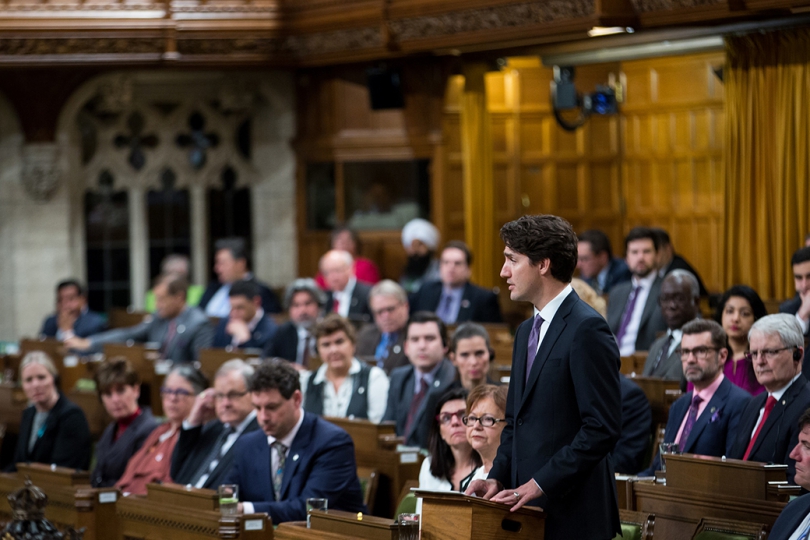Like this article? rabble is reader-supported journalism. Chip in to keep stories like these coming.
The House is back and preparing to deal with the physician-assisted dying legislation, which the Supreme Court instructed the government to enact by June 6.
There is a vote scheduled for Monday evening.
It was the government’s haste to pass that measure that created all that Elbowgate fuss and bother in the Commons during the week before the break.
The NDP’s little delaying tactic, which turned into a major confrontation, was a mild protest against a measure to limit debate on that highly sensitive, complex and contentious legislation.
The public view — not nourished by those who make their living reporting on Parliament, nor by members of Parliament on either side of the House, but by legions of social media trolls — is that the New Democrats were the real villains of the piece.
Prime Minister Trudeau’s intemperate intervention was entirely normal and justified, in this view, because NDP leader Mulcair and his colleagues were behaving like kids in junior high.
The PM, who, in this view, is not only the chief executive of government but also the boss of everything that happens in the House, had no choice but to assert his notional (if entirely imagined) authority.
Members of Parliament have a rather different perspective.
They believe they have a duty to speak in the House on the assisted dying bill.
The right to die is not, and should not be, a political and partisan matter, and MPs have been receiving an enormous volume of correspondence on it from their constituents. Canadians want their voices heard on assisted dying.
Praise for the government — and concern about its disregard for Parliament
In the aftermath of Elbowgate, one of the new crop of MPs elected last time, Vancouver Island NDPer Sheila Malcolmson, expressed extreme frustration at her inability to represent her constituents’ deeply felt views on the legislation to allow doctor-assisted death.
When she spoke, Malcolmson first made a conscious and quite deliberate point of lauding the government for its early efforts to cooperate constructively with all parties.
She mentioned the justice minister working with her NDP colleague Randall Garrison on transgender rights, and the House’s non-partisan debate on the suicide crisis in Attawapiskat. And she praised the Prime Minister, personally, for, as she put it, “raising the profile of feminism.”
“We have a unique opportunity in the world right now to truly bring gender equality and to bring gender into all our conversations,” Malcolmson said, “and I commend the government for setting that tone.”
But the British Columbia MP also told the House she was
“frustrated and disappointed that I have come to work on four days this week being ready to give a speech on physician-assisted dying, to echo the extremely high volume of mail and advice that I am getting from my constituents. Four days in a row I have shown up ready to give that speech, and the Liberal government has changed its mind, saying, ‘We are going to talk about immigration.’ or ‘Over the next hour we are going to talk about the RCMP.’ How can the minister justify shutting down debate when we need to be having these important conversations in this House?”
Malcolmson expressed concern that the government seemed to be turning away from its original cooperative, compromising, open-minded approach to Parliament.
Using closure five times for fifteen bills was five times too much, Malcolmson said, and then added, with particular reference to the assisted dying legislation:
“I encourage the government to back down from its strong-arming of this legislation. It should allow us to do our work, to represent our voters and our ridings, and to speak true voice to all the important issues before the House.”
The government will not, however, back down. It is mindful — perhaps too mindful — of the Supreme Court’s June 6 deadline.
A number of those independent Senators appointed by Trudeau have said, however, they do not feel bound by any deadline, and have doubts about key elements of the assisted dying bill, which they do not believe would withstand a court challenge.
And so, Members of the Commons might very well get another chance to express themselves on assisted dying, when an amended version of the bill comes back from the Senate.
Like this article? rabble is reader-supported journalism. Chip in to keep stories like these coming.
Image: pm.gc.ca/Adam Scotti



